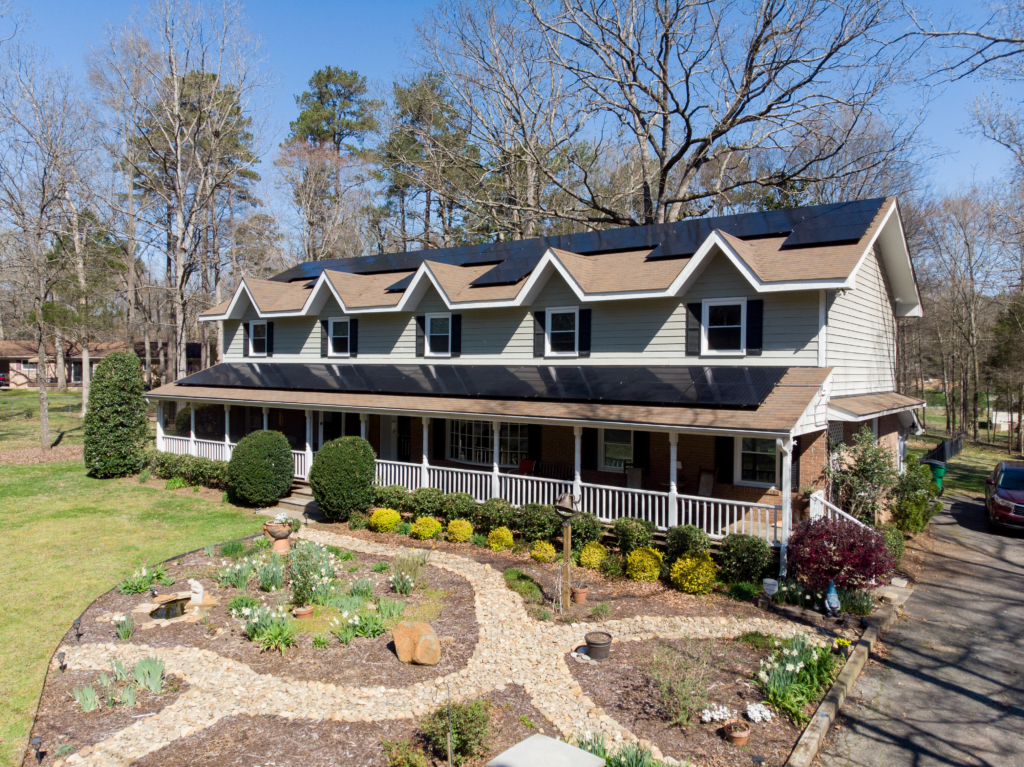Spotlight: Michael Westhafer
Spotlight on a Solar Pro: Michael Westhafer
![]()
For October’s spotlight on a solar pro, Renu wanted to highlight someone who is praised by his coworkers and has a passion for the environment: Michael Westhafer. Not to mention, he was July’s Field Employee of the Month!
Michael Westhafer was born in Charlotte, NC and went to college at Appalachian State University, where his love for the earth and renewables began. “I became interested in renewable energy when I decided to study Sustainable Development at App. State. I realized the magnitude of human effects on our ecosystem and acknowledged that we if we want a healthy planet for future generations then we need to shift from conventional fossil fuels to a renewable energy source”. After graduating, he got involved in the trades and eventually got an offer with Renu to work on our electrical team.
In response to his thoughts on battery systems and energy storage Michael says: “they give us the ability to use solar energy during a utility grid outage. A huge limitation to our electric grid is that we don’t currently have a way to store energy after it is produced. This creates a wasteful energy model. Having the ability to store energy in batteries will help promote energy efficiency and independence.”
If he could write a more informal, fun job title for himself that describes his favorite work responsibility or activity, it would be “Sun Saver”. Michael has worked for Renu since last September and has loved every minute of it.
“I approach my role with a positive attitude. The work I do is a reflection of my mentality, I believe that keeping a positive attitude about my work helps maintain a higher standard for the installations that I am part of.”
In his free time, he enjoys gardening and hiking with his dog. In addition to being a solar expert, he loves carpentry and woodworking. Most of his coworkers don’t know this, but he has been a beekeeper for almost 2 years.
Motivated and well-rounded, Michael Westhafer is a perfect example of the ideal employee at Renu Energy Solutions. We are proud to have him as a part of our field installer team and the Renu family!
Read our feature on another solar professional: Frazier Spann, Solar Team Lead
Read another feature on a solar professional: Hannah Elliott, Operations Supervisor
Read about the experience of Austin Winecoff, Summer 2018 Solar Installation Intern
Read about our two summer 2018 operations interns, Jenny Nguyen and Sam Robbins
Read about Logan Peterson, our summer/fall 2018 Operations Department Intern
Read about Christina McClain, our Jr. Project Coordinator
Read about Jeff Stewart, our Director of Alternative Finance

Frequently Asked Questions About Solar for Your Home:
How exactly does going solar and a solar system itself work?
How many solar panels do I need for my home?
Roof-size/available space: When we look at the size of your roof and the space available, we gather data that tell us the maximum number of solar panels your home or site can hold and we even consider shading. We use a software “Suneye” which takes a 360 picture of your roof and we use this photo to determine if your home is a good candidate for solar.
Energy Usage: When we determine energy usage we look at your past electrical bills from over the course of a year to make sure your system isn’t too big or too small.
Your Budget: We take your budget seriously and most importantly, we want you to be satisfied with our services. We take your feedback on how much you want to spend so that we can size your system appropriately.
What is solar net-metering?
Does Duke Energy offer net-metering?
Curious about the cost of a home solar system?
Ready to Own Your Own Energy?
Speak to Us Today!
